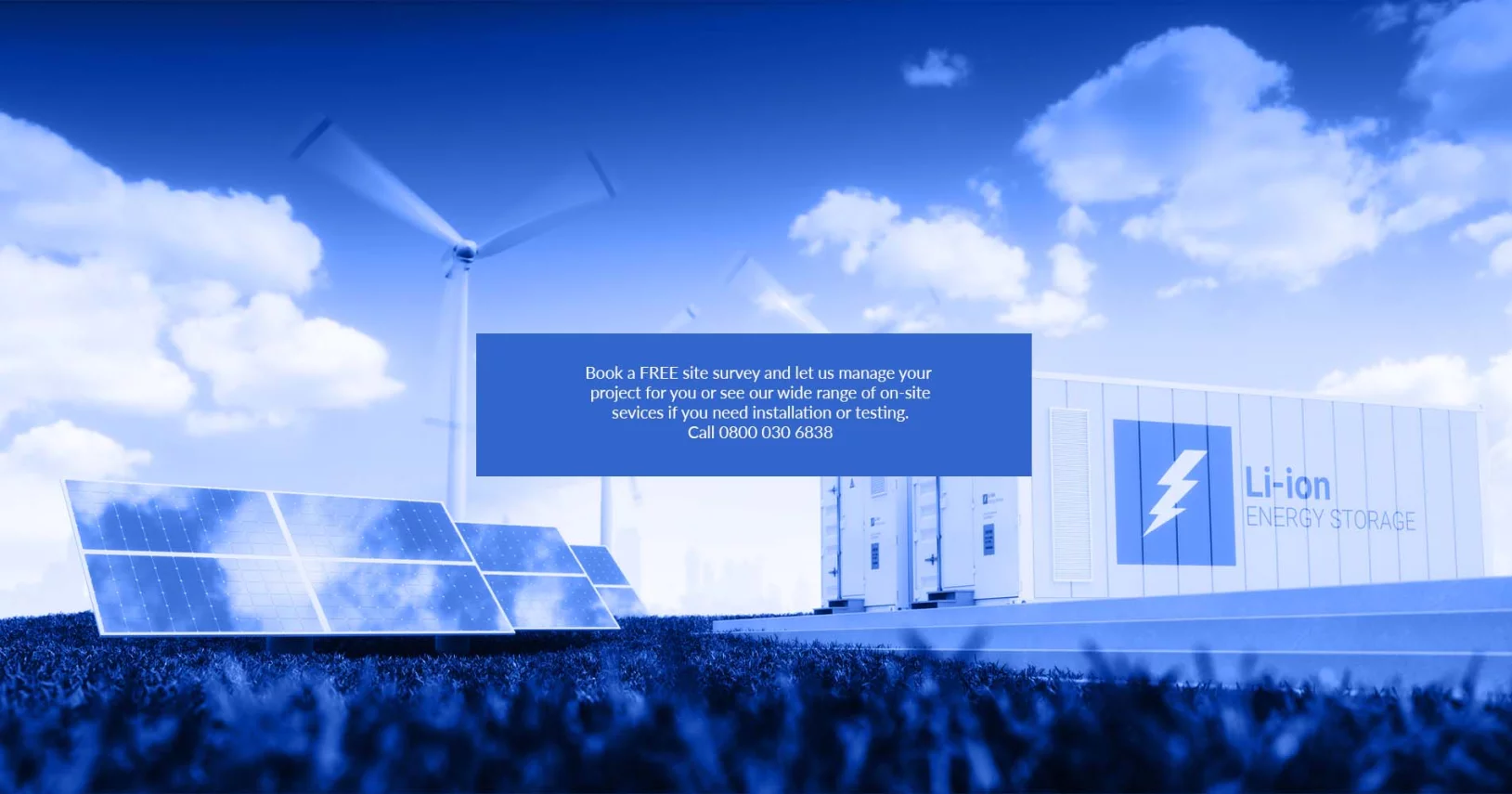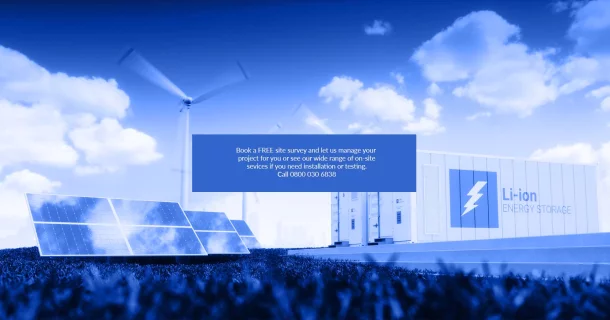An energy storage system (EES) is a way to store electrical energy generated from renewable power systems or generating stations within a battery-set for later discharge and usage. The type of batteries used within an energy storage system tend to be lithium-ion.
Energy Storage Systems
Hyperscale datacentres are setting the trend to use renewable power as a secondary or primary source of electricity to meet their sustainability objectives and reduce their carbon footprints. The sources of renewable power used including solar PV farms and wind turbine installations. Within areas of prolonged and extreme cold, data centres are also looking to use their heat as part of district heating schemes. Energy storage systems provide a way for data centres and server rooms to become grid-independent and store a source of renewable power for later usage.
Energy storage systems offer an alternative back-up power solution to traditional uninterruptible power supplies and lead acid battery set combinations. The most suitable battery technology is lithium-ion (Li-ion) for projects that will use the stored energy on a regular basis. Lead acid batteries are more suited to standby power projects with less frequent charge/discharge cycles.
Virtual Power Plants
Energy storage systems can also be used to supplement grid supplies and lower electricity bills. There is a growing trend to use storage systems with lithium-ion batteries for night-time charging when electricity tariffs are lowest and then to use (discharge) the batteries during the day to power a building’s core electrical systems when rates are highest.
Lithium-ion batteries can also be used with some uninterruptible power supplies in this type of installation allowing the UPS system to be used as a virtual power plant (VPP). The UPS powers critical building systems during the day and provides protection from mains power outages. At night the Li-ion battery is recharged and still available to supply power to the UPS inverter if a power outage occurs. Some uninterruptible power supplies have bi-directional rectifier/converters allowing them to export power from the Li-ion batteries into then grid.
Hybrid UPS Energy Storage
In remote areas, a hybrid UPS and energy storage installation can provide 24/7 power with the need to run generators on a regular basis. The generators can be used in standby mode, as an alternative source of power to the mains power supply or battery set. Some UPS systems can also connect to a solar PV installation to provide a third source of power for battery recharge.
Containerised Power Solutions
For ease-of-deployment or where building space is limited, Server Room Environments can provide containerised energy storage systems. The containers can be painted and fitted-out client specification and only require connection and commissioning once delivered to site as they include the energy storage system components, cooling, lighting, remote monitoring and LV switchgear.

Earn SRE points on all online purchases with double points on selected products































